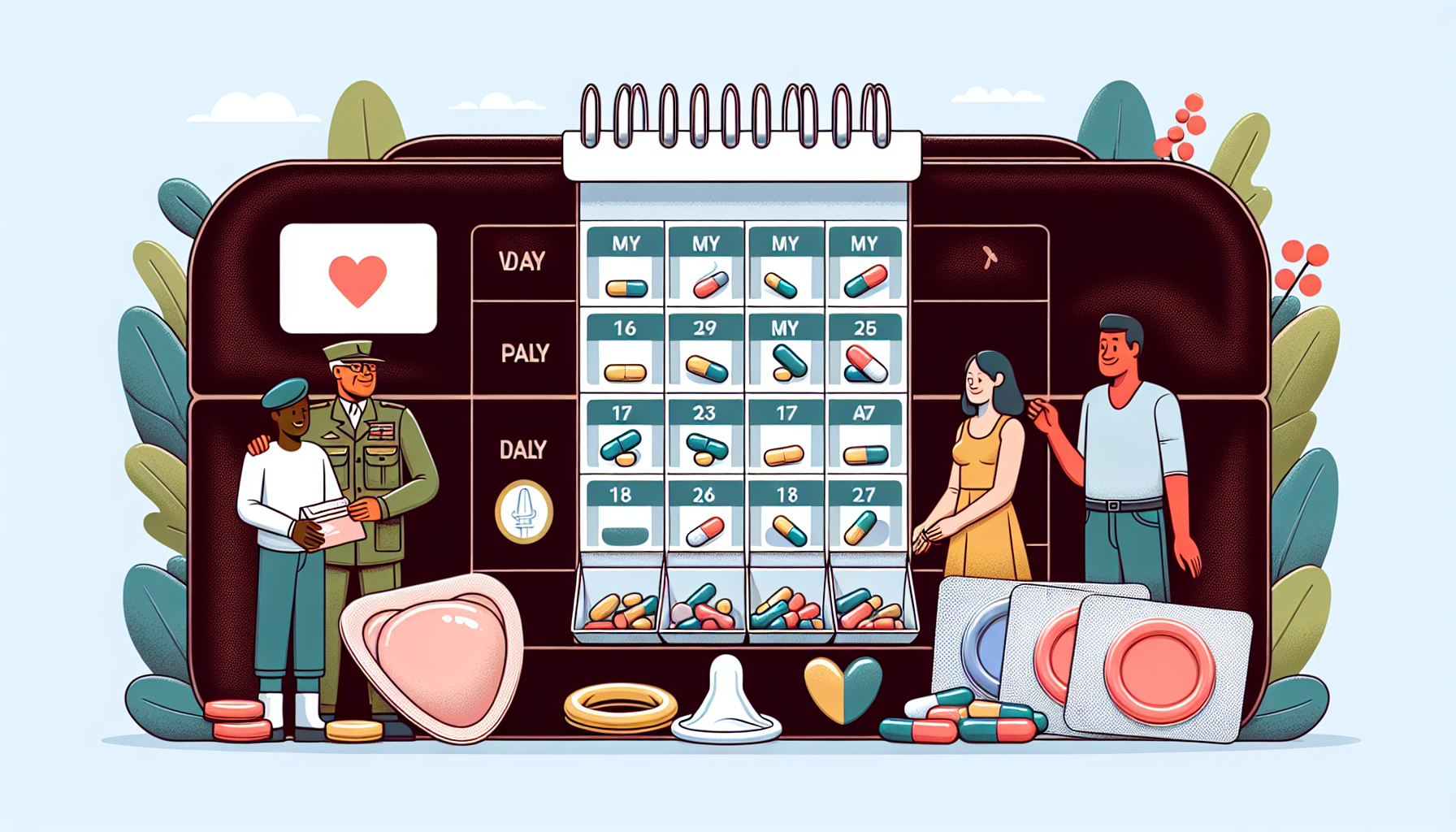Definition
The VA benefits term “Birth Control” refers to the various methods and practices employed to prevent or reduce the likelihood of pregnancy. This may involve contraceptives, such as pills, patches, or intrauterine devices (IUDs), as well as barrier methods like condoms or diaphragms. The Department of Veterans Affairs (VA) offers comprehensive family planning services and counseling for eligible veterans, including various birth control options.
Key Takeaways
- VA benefits cover a wide range of birth control methods, including prescriptions, over-the-counter options, and procedures such as sterilization, to support the reproductive health of eligible veterans.
- VA healthcare providers offer guidance and personalized recommendations for birth control methods, taking into account each veteran’s unique medical history, lifestyle, and preferences.
- Access to affordable and effective birth control is a vital aspect of preventive healthcare, and the VA is committed to ensuring that eligible veterans can make informed decisions about their reproductive health.
Importance
The VA benefits term “Birth Control” is important because it highlights the commitment of the Department of Veterans Affairs (VA) to support and provide comprehensive family planning services to eligible veterans.
This includes access to various birth control methods, counseling, and reproductive education to help veterans make informed decisions about their reproductive health and family planning needs.
By offering these services and resources, the VA enables veterans to effectively manage their health, exercise personal autonomy regarding their families, and contribute positively to their overall well-being.
Explanation
Birth control, also known as family planning or contraception, has a significant purpose in allowing individuals and couples to manage their reproductive health and make decisions in regard to family size and timing. The primary function of birth control is to prevent unintended pregnancies, providing individuals with the ability to choose when and if they want to conceive.
This empowers people to make informed decisions about their lives, leading to better physical, emotional, and financial well-being for themselves and their families. It can also be vital in reducing population growth and socio-economic pressures on our rapidly evolving world.
Within the realm of VA benefits, birth control serves a critical function for veterans and their families. Access to various contraceptive methods supports the well-being of female veterans by giving them control over their reproductive decisions post-service, a crucial aspect of overall health and quality of life.
Furthermore, the ability to plan and space pregnancies not only benefits maternal and child health outcomes, but also allows veterans to pursue education and career goals, contributing to their ongoing personal and family stability. Ensuring that veterans have access to birth control as part of their VA benefits portfolio demonstrates a commitment to their comprehensive health and well-being beyond their time in service.
Examples of Birth Control
The VA Benefits term “Birth Control” refers to the healthcare benefits offered to eligible veterans, which include coverage for various contraceptive options. Here are three real-world examples of birth control options provided by the VA:
Contraceptive Pills: A common birth control method, contraceptive pills are prescribed to female veterans by their VA healthcare providers. These pills contain hormones that help prevent ovulation, thereby preventing pregnancy. They are usually taken daily, and VA Benefits cover the cost of these prescriptions for eligible veterans.
Intrauterine Device (IUD): The VA healthcare system offers IUDs to female veterans seeking long-term birth control. An IUD is a small, T-shaped device that is inserted into the uterus by a healthcare provider. It prevents pregnancy by altering the environment of the uterus, making it inhospitable to sperm. VA Benefits cover the cost of the IUD and the insertion procedure for eligible veterans.
Condoms: Condoms are a barrier method of birth control, which VA facilities offer at no cost to eligible veterans. These are typically made of latex or polyurethane and help prevent the spread of sexually transmitted infections (STIs) and unintended pregnancies. No prescription is required to obtain condoms at VA facilities, and they can be requested during visits to the healthcare provider.
FAQs: Birth Control and VA Benefits
1. Are birth control options covered under VA health care benefits?
Yes, the Department of Veterans Affairs (VA) provides a variety of birth control options to eligible veterans. These options include traditional contraceptives, hormonal methods, non-hormonal methods, and permanent options. The available birth control methods will depend on your specific needs and your healthcare provider’s recommendations.
2. How can I access birth control through the VA?
To access birth control through the VA, you must first be enrolled in VA healthcare. You can apply for VA healthcare benefits online, by phone, by mail, or in person. Once enrolled, you can consult with your primary care provider or women’s health provider to discuss your birth control options and determine which method is best for you.
3. Is emergency contraception available through VA benefits?
Yes, emergency contraception, also known as the “morning-after pill,” is available through the VA. To access emergency contraception, you can contact your VA healthcare provider, visit an urgent care clinic, or go to an emergency room to request it. It is essential to take emergency contraception as soon as possible after unprotected sex to maximize its effectiveness.
4. Can I receive family planning counseling and birth control education through the VA?
Yes, the VA offers family planning counseling and education to help you make informed decisions about your reproductive health choices. You can discuss your concerns and ask questions about your birth control options during appointments with your VA healthcare provider or women’s health specialist.
5. Are tubal ligation and vasectomy procedures covered by VA benefits?
Yes, the VA covers both tubal ligation and vasectomy procedures as permanent birth control options for eligible veterans. However, it is essential to discuss your desire for permanent birth control with your VA healthcare provider to determine if it is the best option for your specific situation and to review any potential risks and benefits.
Related VA Benefit Terms
- Contraceptive methods
- Family planning
- Reproductive health
- Emergency contraception
- Preventive healthcare
Sources for More Information
- U.S. Department of Veterans Affairs: The official website of the Department of Veterans Affairs provides comprehensive information related to VA benefits, including birth control options and services available for veterans.
- Planned Parenthood: Planned Parenthood offers a wealth of information related to reproductive health, including birth control methods and family planning services available to veterans and non-veterans alike.
- The Reproductive Health Access Project: RHAP is dedicated to expanding access to reproductive health care, providing information about various birth control methods, as well as resources for health care providers and patients, including veterans.
- Office on Women’s Health: This U.S. Department of Health and Human Services office provides resources and information related to women’s health, including birth control options, services, and resources that are relevant for female veterans.
 Benefits.com Advisors
Benefits.com Advisors
With expertise spanning local, state, and federal benefit programs, our team is dedicated to guiding individuals towards the perfect program tailored to their unique circumstances.
Rise to the top with Peak Benefits!
Join our Peak Benefits Newsletter for the latest news, resources, and offers on all things government benefits.





















